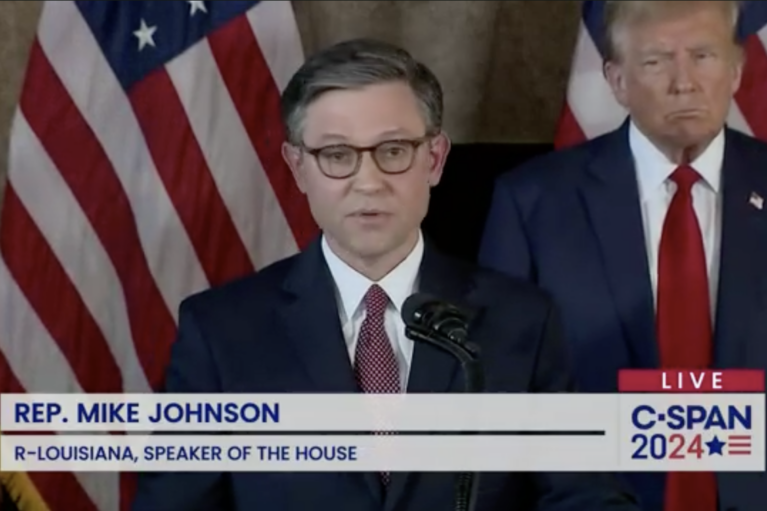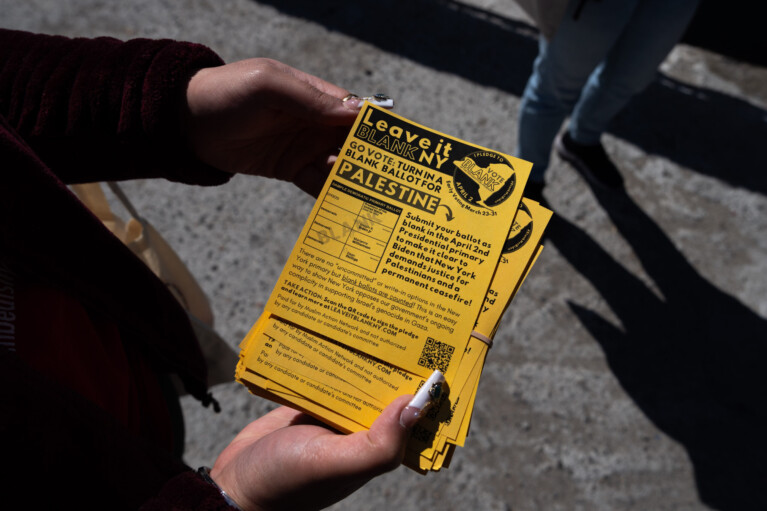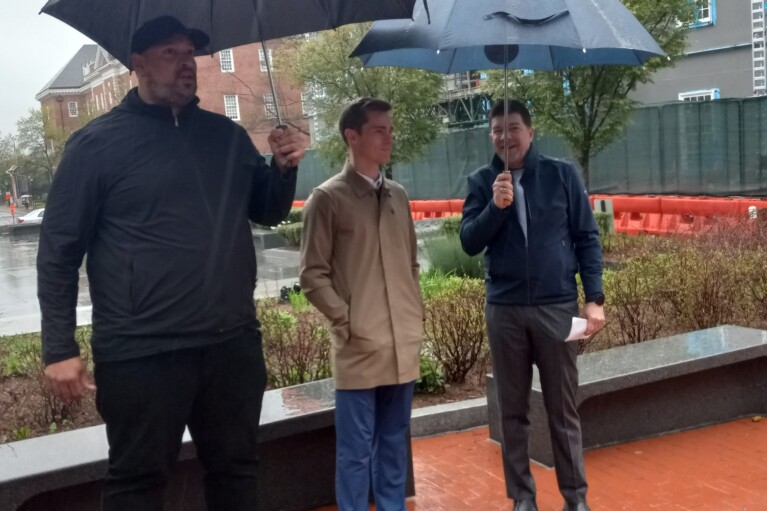A two-month-old poll on the Baltimore mayoral election showed City Council President Brandon M. Scott leading his potential Democratic primary rivals in hypothetical matchups — but with enough churn and uncertainty in the electorate to suggest that the April 2020 primary race is wide open.
Maryland Matters just obtained the poll, conducted Sept. 16-20 by the prominent Washington, D.C., Democratic polling firm, Garin-Hart-Yang Research. The poll, which queried 500 likely Democratic primary voters, was, according to multiple sources, paid for by three labor unions — SEIU Local 500, SEIU Local 1199, SEIU Local 32BJ and the Laborers International Union of North America.
While the survey seems designed to test the case for the mayoral candidacy of state Sen. Mary L. Washington, who just entered the race this week, the analysis shows upsides and downsides for each of the leading candidates.
The poll found that Baltimore City Democrats are highly motivated to vote, fueled by their anger over President Trump and their disgust with the scandals swirling around former mayor Catherine E. Pugh (the poll was taken two months before Pugh’s guilty plea this week on a series of corruption charges).
In the poll, only 26% of voters said they were satisfied with the direction of the city. Seventy-two percent said they were dissatisfied.
The April 28 mayoral primary is being shaped in many ways by Pugh’s resignation last May. Bernard C. “Jack” Young, then the long-serving City Council president, moved up to become mayor. Two months later, Scott was selected by his colleagues on the City Council to succeed Young as council president.
The Garin-Hart-Yang poll found Scott leading his rivals in two hypothetical three-way Democratic primary matchups.
In one scenario, Scott took 36% to Young’s 29% in a race featuring former mayor Sheila Dixon, who took 17%. Eighteen percent of those queries were not sure. Dixon is contemplating a political comeback.
In another hypothetical three-way matchup, Scott took 37% to Young’s 33% when the two were pitted against Washington, who took 11%. Nineteen percent of Democratic primary voters said they weren’t sure.
The pollsters did not test any of the other Democratic candidates for mayor, including former prosecutor Thiru Vignarajah or former Baltimore Police Department spokesman T.J. Smith. They did ask for voters’ opinions on several local political leaders.
Asked to rate Young’s job performance, 13% of poll respondents said excellent, 35% said good, 34% said fair, and 8% said poor. Ten percent were unsure.
Asked if they would vote to keep Young or if they preferred someone else, 29% said they would vote to keep him and 45% said they wanted someone else. Twenty-six percent were unsure.
Young had a 50% positive rating and an 11% negative rating. Twenty-six percent of voters described themselves as neutral, and 13% said they were unsure.
Scott had a 52% positive rating and an 8% negative rating. Eighteen percent of voters described themselves as neutral, and 22% said they were unsure.
Dixon, who resigned in scandal in 2010, had a 37% positive rating and a 33% negative rating. Twenty-three percent of voters described themselves as neutral, and 7% said they were unsure.
Washington registered a 24% positive rating and a 5% negative rating. Seventeen percent of voters described themselves as neutral, while a whopping 54% said they were unsure.
The latter number is seen as a hopeful sign for Washington supporters — or at least as an indication that she isn’t very well known among voters and has room to grow. Washington was elected to the state Senate last year after eight years in the House of Delegates.
Poll respondents were read quick descriptions of Scott, Young and Washington and asked how that would impact their vote. Scott was described as representing “a new generation of leaders eager to rebuild the city.” Young was described as “a centrist with a strong focus on constituent service.”
Polltakers offered voters alternating descriptions of Washington. One referred to her as “a strong progressive” who “made history” by becoming the first African-American LGBT state lawmaker in Maryland. The other referred to her as “a strong progressive” and “a budget expert.”
Asked for their preferences after the descriptions were read, 42% of voters chose Scott, 26% went for Young, and 17% preferred Washington. Fifteen percent were unsure.
Crime, equity and economic development
The poll asked voters several questions about issues and priorities heading into the 2020 city elections.
Asked to name the two issues they were most concerned about, 58% of voters identified crime, 32% said education, 16% said corruption, 16% said jobs, and 13% said affordable housing.
Several questions found voters concerned about taxpayer subsidies to developers, development in general, and economic opportunities for local residents. Asked for their opinion on development in downtown Baltimore and the Inner Harbor, 31% of voters said it was good, 7% said bad, 58% said “in between,” and 4% weren’t sure.
Asked whether development over the past 20 years hasn’t helped create middle class jobs, 47% of voters said they strongly agreed and 32% said they somewhat agreed. Asked whether the city needed “a new economic growth strategy,” 71% strongly agreed and 21% somewhat agreed.
Asked for the two qualities they’d most like to see in Baltimore’s next mayor, 60% said “honest and ethical,” 31% said “standing up for working families,” 17% said “a progressive agenda that challenges the establishment,” 16% said “experience in government,” 15% said “a new approach,” and 9% said “a longtime Baltimore resident.”
Asked whom they were more likely to support, a candidate with a strong progressive agenda who would work to reduce income equality versus a candidate who offered stable leadership and was dedicated to improving services, 27% chose the former and 48% chose the latter. Twenty-one percent of voters said they valued both equally.




 Creative Commons Attribution
Creative Commons Attribution